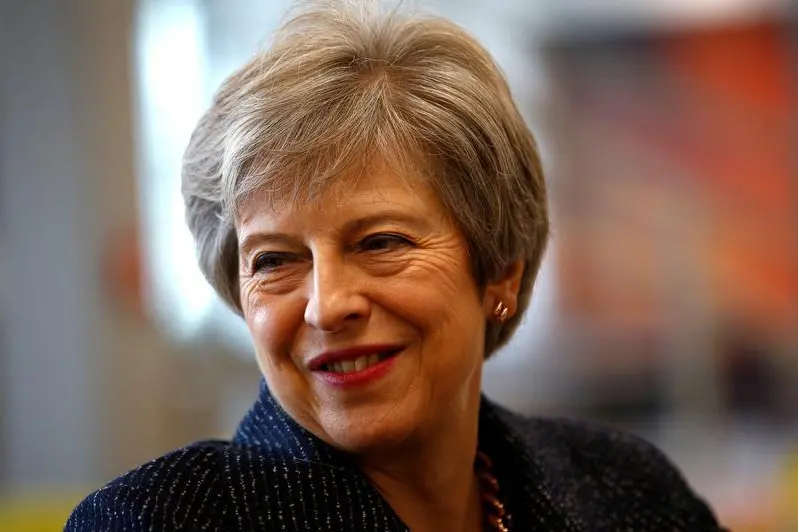PHOTO
LONDON/BRUSSELS - British Prime Minister Theresa May's Brexit strategy was in meltdown on Monday after her failure to win last-minute concessions from the European Union set the stage for another humiliating defeat of her divorce deal in parliament.
Just 18 days before the United Kingdom is due to leave the EU on March 29, there is still no ratified divorce deal and talks with the bloc have stalled as May tries to break the political deadlock in London.
Talks are deadlocked and May has no plans to go to Brussels on Monday, a British government source said. That led to speculation that May could seek to change or even pull a parliamentary vote on her deal planned for Tuesday.
European officials said there had been no breakthrough in talks over the weekend and expressed frustration with May's attempts to secure concessions just weeks before Britain's exit.
"May has boxed herself even deeper into a corner, it seems the second meaningful vote will go ahead on Tuesday but it also seems like it won’t be the last meaningful vote on this," one EU official said.
"We really want to be over with it now. It’s not going anywhere so even an extension is unlikely to break the impasse. There is not much patience or goodwill left on our side."
Sterling was down 0.3 percent at $1.2978 GBP=D3 .
The United Kingdom’s tortuous crisis over EU membership is approaching its finale with an extraordinary array of options including a delay, a last-minute deal, a no-deal Brexit, a snap election or even another referendum.
The ultimate outcome remains unclear, though most diplomats and investors say Brexit will define the United Kingdom's prosperity for generations to come.
BREXIT IN PERIL
The deadlocked talks effectively open up the prospect of either a last-minute deal, probably around the time of an EU summit on March 21-22, or a delay to Brexit.
Parliament rejected May's deal by 230 votes on Jan. 15, prompting her to return to Brussels in search of changes to the so-called Irish backstop - an insurance policy to prevent the return of a hard border between Ireland and Northern Ireland.
Many British lawmakers object to the policy on the grounds that it could leave Britain subject to EU rules indefinitely and cleave Northern Ireland away from the rest of the United Kingdom.
But the EU has repeatedly said it does not want to reopen the divorce deal, officially known as the Withdrawal Agreement, and the British government's top lawyer has failed to find a legal fix.
May offered lawmakers a "meaningful" vote on what she had hoped would be a revised deal on Tuesday but with no major changes yet secured, Brexit-supporting lawmakers warned it would be defeated again.
Nigel Dodds, deputy leader of the Democratic Unionist Party (DUP) which props up May's minority government, and Steve Baker, a leading figure in the large eurosceptic faction of her Conservative Party, said she was heading for defeat.
If her deal is defeated, May has pledged to give lawmakers a vote on Wednesday on leaving without a deal on March 29 and, if they reject that, then they will vote on Thursday on delaying Brexit.
The Sun newspaper's political editor Tom Newton Dunn said the most likely option was that May would change the status of Tuesday's vote, calling it a "provisional" rather than "meaningful" vote.
Michael Gove, who campaigned for Brexit in 2016, said if May lost Tuesday's vote then the government would effectively lose control of Brexit.
(Writing by Guy Faulconbridge; Editing by Janet Lawrence) ((guy.faulconbridge@thomsonreuters.com; 07825218698;))





















